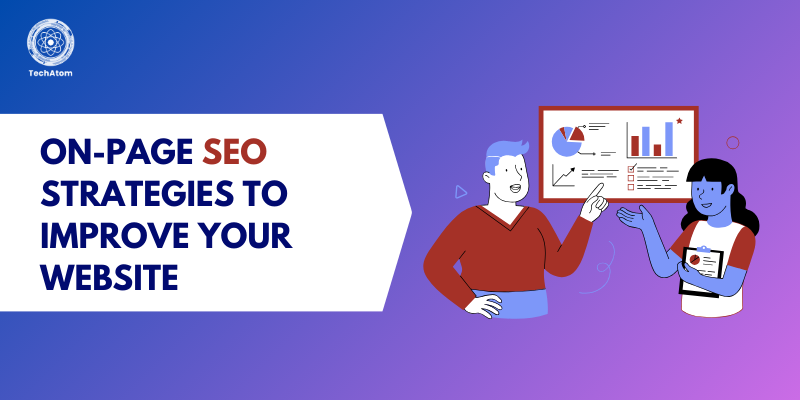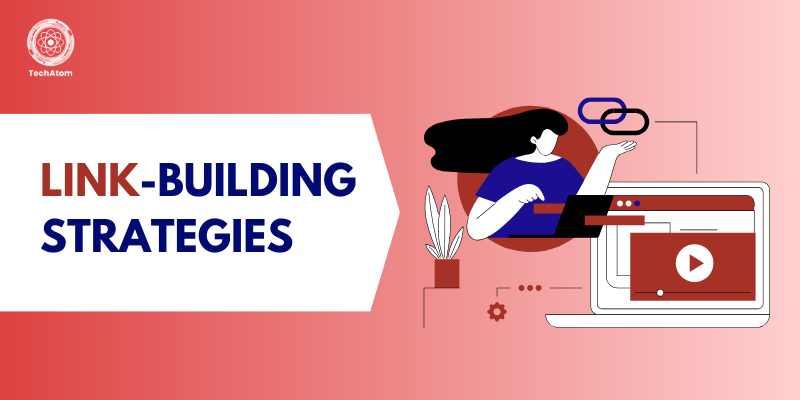SEO, or Search Engine Optimization, is a set of measures to upgrade your online presence and eventually achieve the desired visibility. The concept is as simple as it sounds, but it becomes complicated due to its vastness. What makes it more difficult is the unnatural expectation that SEO will rank one’s website magically in just one day.
Understanding website-specific needs requires extensive research and thoughtful strategy development, and this is where the approach also branches out into two distinct directions.
If you wish to optimize your website with content, keywords, meta tags, and internal linking, you are looking at On-page SEO. Another aspect of SEO is Off-page SEO, which involves external factors like backlinks, social signals, and brand mentions to help grow traffic.
In this blog, we’ll dive into On-page SEO to understand its importance and how you can implement it for online success!
Why Is On-page SEO Important For Your Website?
On-page SEO is the foundation of SEO optimization, focusing on enhancing your website’s overall performance and visibility. On-page SEO strategies are your only organic way to improve your website’s visibility and search ranking. It focuses on fixing issues within the website so that it can be more user-friendly and, in turn, fetch more search engine rankings.
These are the benefits that you get with excellent on-page SEO strategies:
- Better User Experience: Facilitating a better user experience is one of the many features of SEO. With easy navigation, structured content, mobile-friendliness, and proper headlines, SEO enhances the user experience and makes navigating your website a piece of cake.
- Improved Search Engine Rankings: SEO helps the search engine understand the content of your work and rank it higher. With optimized content, proper keyword placement, and meta tags, your website can harness the attention of the search engine.
- Builds Trust and Credibility: With optimized images, properly inserted links, and categorized images, your website becomes more user-friendly and informative. This not only enhances the user experience but also signals to search engines that your site is valuable and trustworthy, helping to improve rankings and authority.
- Increased Organic Traffic: With improved ranking and authority, you can eventually expect more traffic. You won't have to chase your desired consumer base with paid ads and other tactics.
How To Do On-page SEO?
Before jumping into the steps for On-page SEO, understanding it as a concept is going to be a lot more fruitful. The aspects of On-page SEO are simple, it elevates everything visible to the eye on your website.
But having said that, it is critical for you not to confuse On-page SEO with the appearance of the website. Yes, it can certainly be a part of it, but as a concept, it extends far beyond just visuals.
To help you understand this better, let us consider an example. You must have visited a website that looked all glitz and glamour but lacked certain navigational details, which left a sour taste in your mouth.
This is where On-page SEO comes in. It is a concept that goes beyond aesthetics and ensures that design and functionality work hand in hand.
Here’s how you can implement on-page SEO on your website:
- Quality Content: If you wish to see measurable results, you have to start with the basics. No matter how many SEO-optimized keywords you add, you will fall flat without authentic content. The search engines are designed to flag poor pieces of work.
- Title Tags & Meta Descriptions: You have to be very precise about the information you are trying to put out for your users. The relevant keywords in your title tags and a crisp meta description of 150–160 characters can be a great way to begin.
- Tags: Your H1 tag should have your main keyword and clearly tell what the page is about. Use H2 and H3 tags to break up your content, making it easier to read and better for SEO.
- Mobile-friendly: It is a critical SEO practice to ensure that your site is mobile-friendly. The more responsive your website is, the better the probability of it ranking higher.
- Schema Markup: Adding structured data helps search engines understand your content better and push it further. It also makes your pages stand out with rich snippets, like ratings and FAQs, which can attract more clicks and improve user engagement.
- Image Alt Tags: Adding descriptive alt text helps search engines understand your images and rank them in image search results. It also improves accessibility for visually impaired users and enhances user experience.
- Internal Linking Profile: Linking relevant pages within your site helps search engines understand your content and improves rankings. It also enhances user navigation by guiding visitors to relevant content, increasing engagement, and encouraging them to stay longer. Most importantly, it creates a topical cluster that can increase your authority on a specific topic.
Strategies For Driving Traffic To Your Website Using SEO
Search engine optimization itself is a bunch of strategies to help your website grow. These strategies elevate content, build authority, and improve site structure. The right SEO techniques can drive consistent organic traffic and do wonders for your business.
Here are a few important strategies that you need to implement for better rankings:
- Keyword Research: A major part of On-page SEO, identifying the right keyword for your content helps your website rank higher. With more personalized search intent on the rise, focusing on long-tail keywords will help you attract the right audience.
- Meta Titles and Links: You have to make Google understand the content of each page. It is one of the most critical aspects of SEO. Optimized meta titles improve search rankings and increase click-through rates. Ensuring relevant and concise links also enhances user experience and credibility.
- Quality Content: SEO can fix your website and help you with your rankings in due time only if your content is credible. You will not be able to gather organic traffic with substandard content that shows no experience or expertise.
- Overall On-page SEO: Implementing a strong on-page SEO strategy ensures that search engines can identify your brand. It is not only limited to keyword research or titles; you also have to keep in mind the headers, alt images, and so much more.
- Optimize for Voice Search: With the growing use of voice assistants, you have to include more long-tail keywords. The conversational nature of the keywords will ensure you do not miss out on voice search volumes.
- Leverage Local SEO: Local SEO is a great way to start if your business targets a specific area. It helps you gain traction in local searches and directs organic traffic to your site accordingly. Updating your Google business profile, using location-based keywords, and leveraging customer reviews are some great ways to leverage local SEO.
- Focus on Technical SEO: The technical aspects of your website, like site speed, mobile friendliness, code, structure, and link building, are some other major aspects you need to focus on. Along with that, crawling and indexing are a few other critical aspects you have to take care of.
- Update SEO Strategies: As an online business, you always have to be mindful of any recent updates for SEO. You need to understand that SEO is ever-evolving, and staying updated with algorithm changes, keyword trends, and new optimization techniques is pivotal.
Additional Tips For Increasing Traffic
You have to understand that when implementing SEO strategies, you have to give yourself at least a month or two minimum to see the desired results. But that also means losing out on precious time and valuable traffic.
However, implementing some tried and tested methods can help you gain some of the desired traffic while you work your way around your SEO strategies.
- Social Media: Social media is a part of Off-page SEO strategy that you can rely on as you build your brand. Regular posts, reels, and interactions can do a lot for your brand. It sparks curiosity and drives organic traffic your way.
- Influencer Marketing: A part of the social media strategy itself, influencer marketing is an effective way to gain traction. Partnering with an influencer who has a substantial and engaged following can significantly boost your brand’s visibility, credibility, and reach.
- Paid Advertising: You can rely on Google Ads, Facebook Ads, or sponsored content to reach out to your target audience and drive targeted traffic to your site quickly.
- Guest Blogging: As a guest blogger, you can talk about your brand, highlight your expertise, and gain backlinks to build your credibility and authority.
- Email Marketing: You can connect with your audience and send them valuable content with the help of newsletters, exclusive offers, or updates to keep them hooked and curious about your brand.
Conclusion
As you navigate through the ideal SEO strategies for your website, you have to understand that it is a long process. The toughest part about SEO is that you won't see any progress overnight, but you have to be very consistent with the process.
Staying committed to best practices, regularly updating your content, and adapting to algorithm changes will eventually yield results. With patience and persistence, your efforts will pay off; all you have to do is find the right route map for you.
People are also reading:
- Best AI SEO Tools
- How to Find the Right SEO Consultant for Your Business
- How to Find the Right Digital Marketing Agency
- SEO Best Practices to Drive More Organic Traffic
- Top Web Development Technologies
Frequently Asked Questions
1. How can I create an effective SEO strategy?
You can always start by doing thorough keyword research, optimizing on-page elements (titles, meta descriptions, headers), and improving your website’s user interface.
2. What role does keyword research play in SEO?
Keyword research helps enhance your visibility and brings in more traffic. It is the strategy of identifying the most searched terms used by the audience to look up information online.
3. How often should I update my website content for better rankings?
Regularly updating content keeps your website relevant and signals search engines that your site is active. No search engine will be driving traffic to an inactive website.
4. Why is high-quality, authoritative content important for SEO?
No matter how efficient your SEO game is, without carefully crafted, reliable content, you will never attain the desired traffic. Search engines prioritize well-researched, valuable content that answers user queries.
5. What are the best practices for internal and external linking?
The best practices for internal and external linking include using clear and relevant anchor text, connecting to credible and useful pages, keeping links natural and not overloading your content, and making sure they genuinely enhance the experience.
6. How does mobile optimization impact search engine rankings?
Mobile optimization impacts search engine rankings directly. Google’s mobile-first indexing makes sure that a mobile-friendly site is essential for ranking well.
7. What technical SEO factors should I focus on?
You can devote your attention to site speed, secure HTTPS connections, XML sitemaps, structured data, proper indexing, and fixing broken links for an overall technical check for your SEO strategies.
8. How can I track my website's SEO performance?
You can rely on Google Analytics, Google Search Console, and third-party platforms like Ahrefs or SEMrush to assess your website.
9. What is the difference between on-page and off-page SEO?
The names of the strategies are self-explanatory. On-page SEO involves optimizing elements within your website, such as content, keywords, and meta tags. Off-page SEO focuses on external factors like backlinks, social media presence, and brand mentions.




